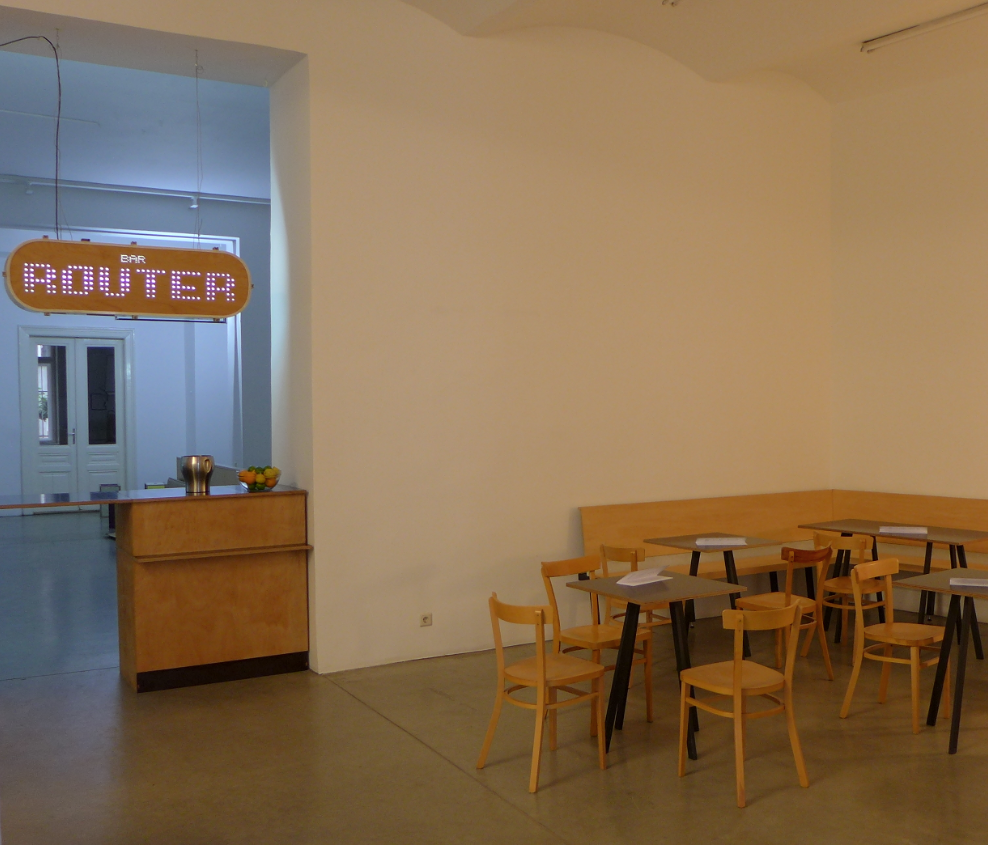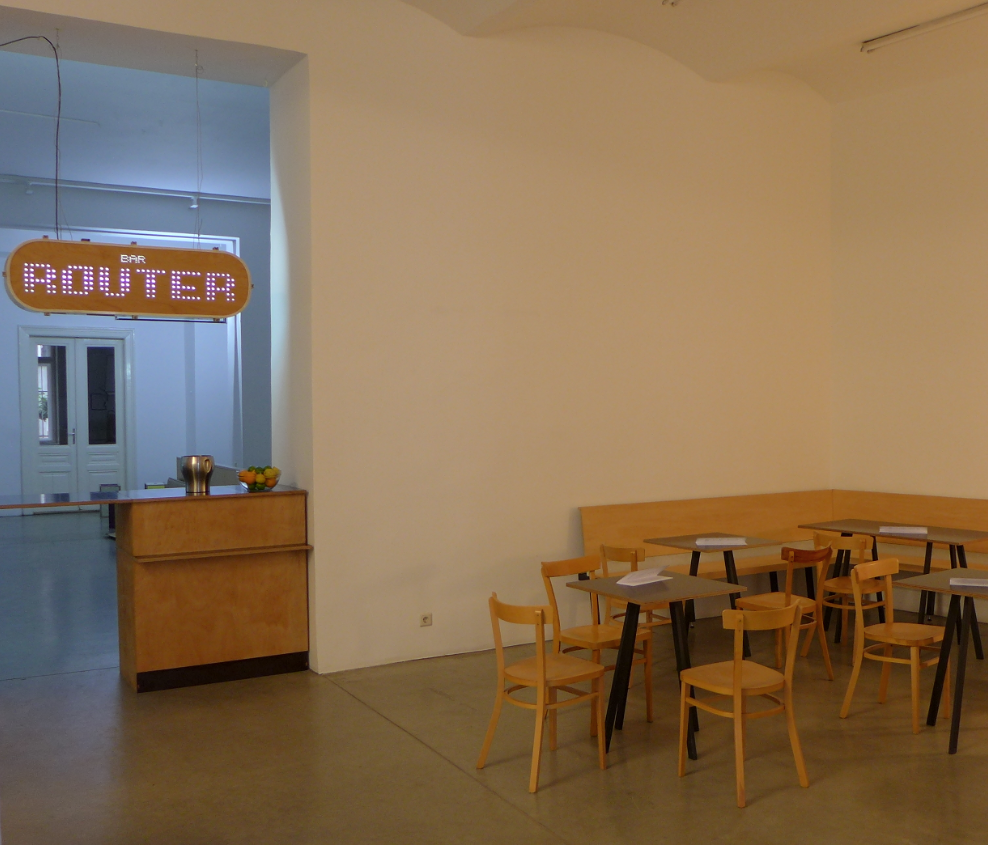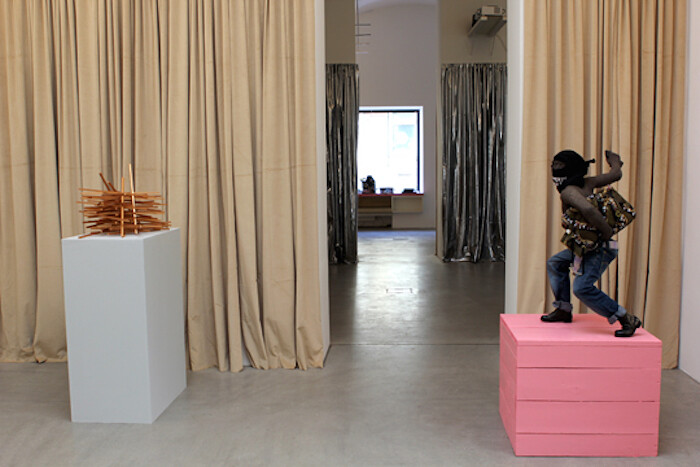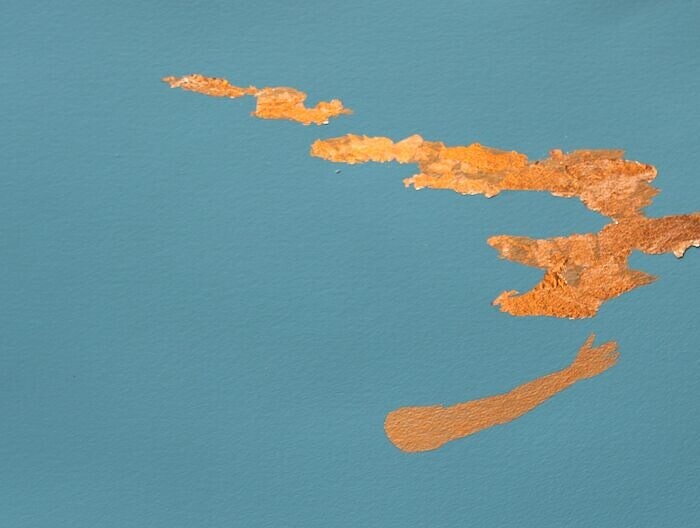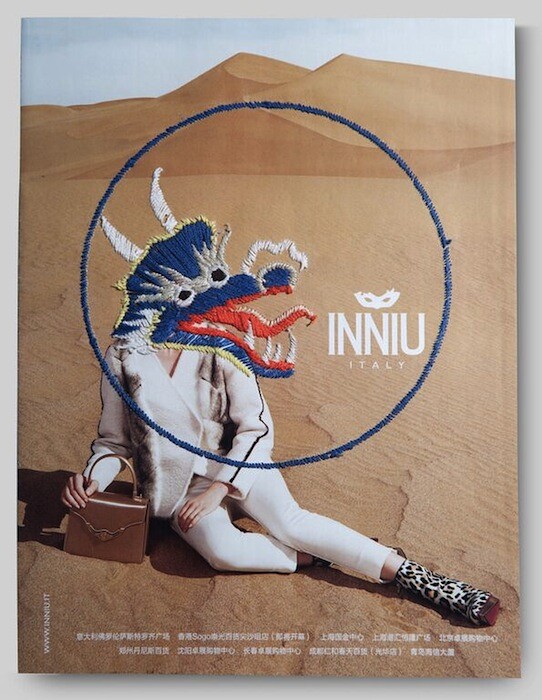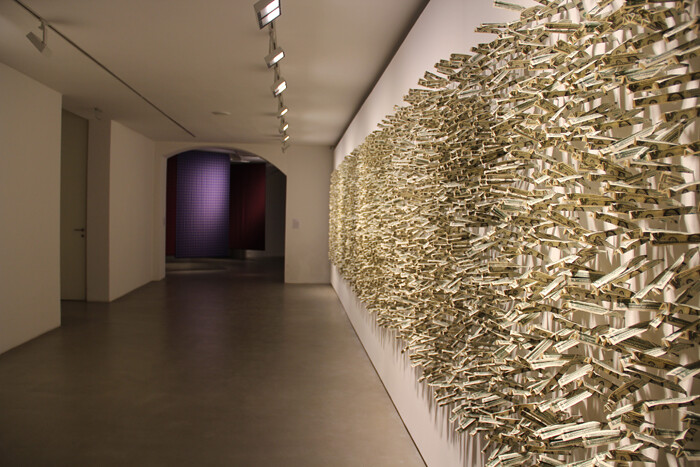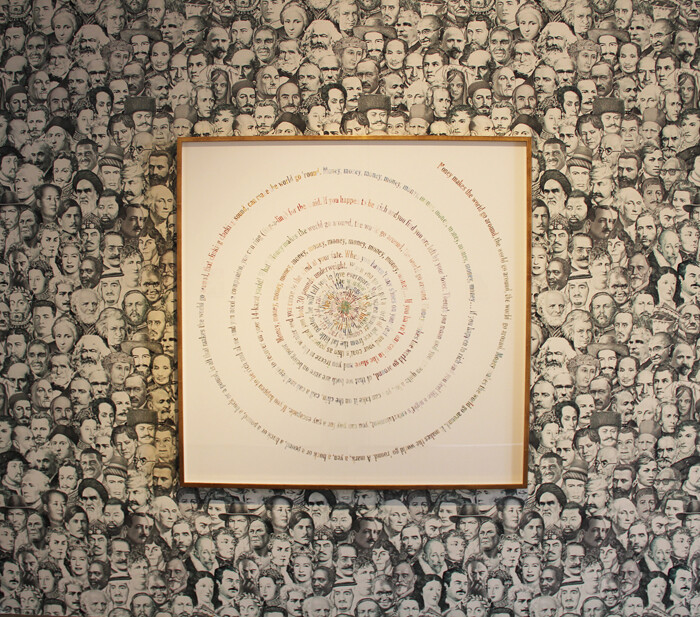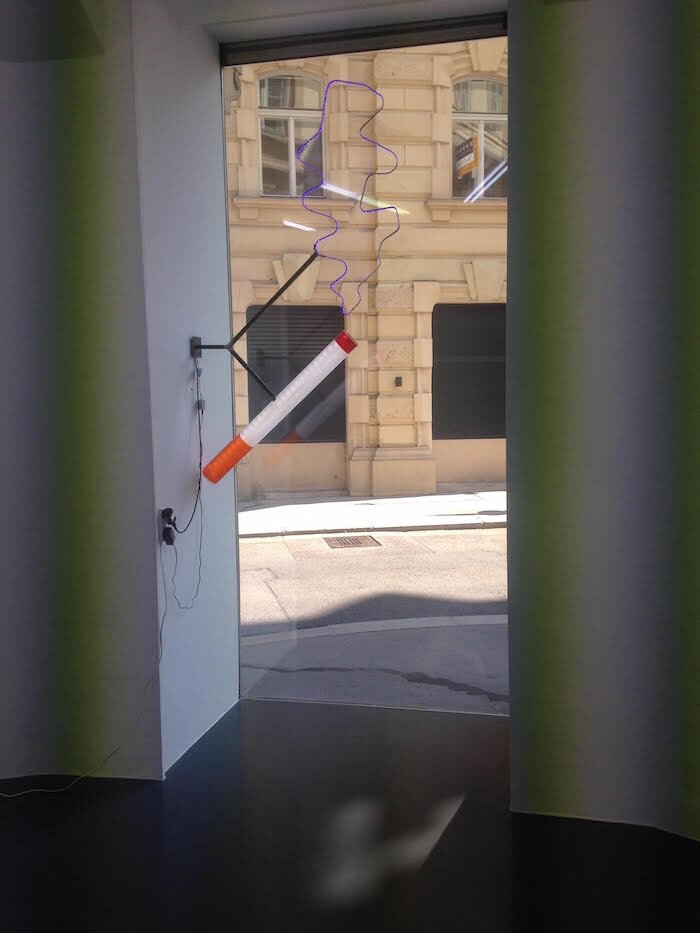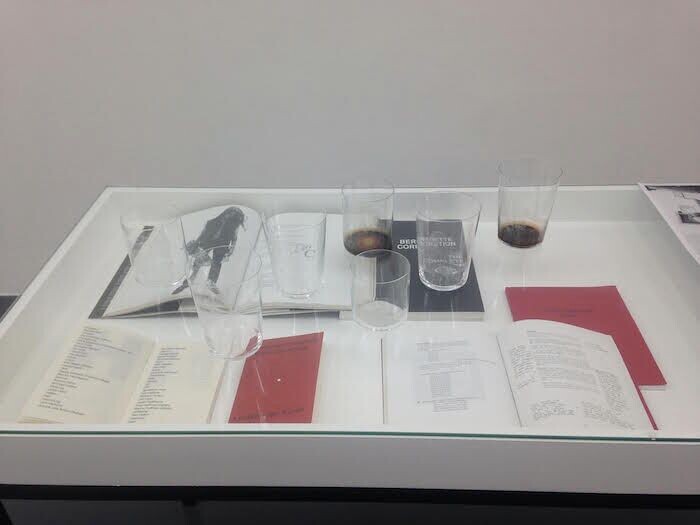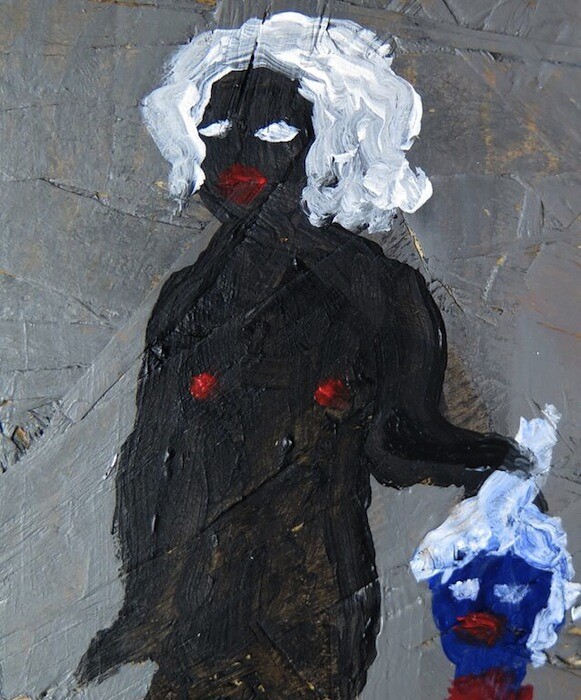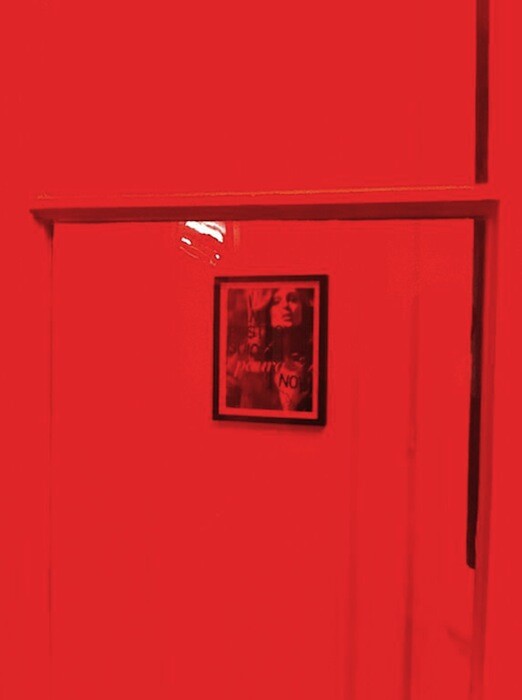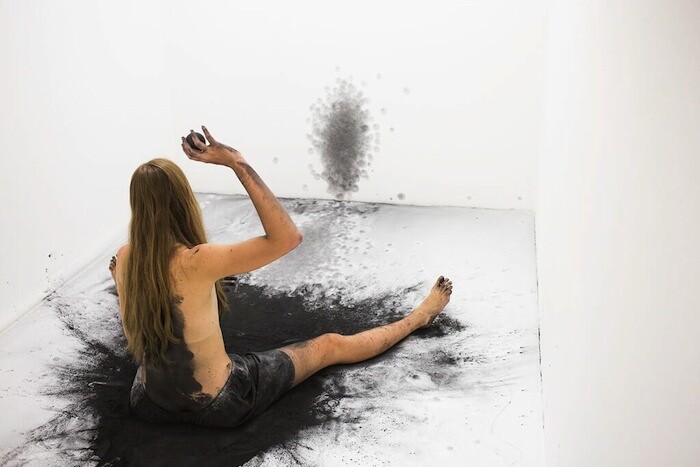On my way to curated by_vienna, a Grand Tour of the city’s galleries timed to coincide with the Vienna Biennale, I pass by the city’s sleek new Hauptbahnhof. Migrants from Syria and Afghanistan come together here after having traveled along what the media call the “Eastern Land route” and “Western Balkan route.” They will not be staying here, but are in transit, on the way to Germany. I talk to a volunteer: today clothes are not needed, but they are short of sleeping bags, shampoo, and diapers. Philosopher Armen Avenessian’s text—from which “Tomorrow Today” takes its name—begins with an insight that he attributes to J.G. Ballard: “Today, science fiction might be the best kind of realism—if, that is, it is not the only possible realism.” What is needed today, we—as citizens—try to provide. We, as a community, play a role in catering for the basic needs of existence. We cannot turn the clock back to alter the situation as it is, but we can try to meet the needs that could have been expected to come, a future predicted by some. “Tomorrow Today,” the title for this year’s curated by_vienna, serves as the impetus for Avanessian to look at our artistic, economic, and political situation from the perspective of an already-present future. He continues by speculating that “Capitalism as we conventionally understand it might not exist anymore, and we are only just becoming aware of this.”
curated by_vienna was initiated by departure, the Creative Unit of the Vienna Business Agency, in 2009 to “support systematic cooperation between Viennese contemporary art galleries and international curators.” Its general aims are noble: to bring discourse where it is required, to bridge the growing gap between the academic and bourgeois, between market and institution, to provide for what could have been expected to come. The objective of curated by_vienna is to strengthen the international network of galleries, curators, and art institutions through the legitimizing figure of the curator. Yet though the aims are noble, the tools are too easily incorporated into the ideals of late capitalism. Criticality is rendered as an image to promote a scene, put to use for the purposes of regeneration, beautification, and city marketing.
Some galleries evoke this dichotomy by making it the topic of their engagement with the program. At Christine König Galerie the artist duo Cointemporary curated the show “Relational Changes,” which looks at the nature of current engagement with capital by exposing the gallery’s mode of operation to the economics of Bitcoins. This opens up a possible alternative economy, one freed from banking systems, perhaps even freed from exhibition spaces. Krinzinger Projekte, on the other hand, invited collector Harald Falckenberg to curate the exhibition “Sales in the Side Room.” He decided not to show any work, just the labels. This not a conceptual game but a comment on what he describes as “the current resistance to having contextual information in exhibitions.” In his opinion this just strengthens the aura of art rather then freeing it, playing into an image of capitalism that is no longer based on facts but operates as an autonomous, thriving machine. Interesting as these examples are, however, they overlook the aesthetic particularities of the work and promote the system above the actuality of artistic practices and their corresponding communities.
curated by_vienna capitalizes on the image of the curator, and well-known figures such as Ruth Noack, Katerina Gregos, and Chris Fitzpatrick all lend their authority. The curator can be considered as the pivotal figure in taking up the interface between art and capital as political contestation, and we can apply Avenessian’s thinking on art to the act of mediation too: “artistic imagination and poetic strategies can help us accelerate the entry into a post-capitalist society.” Ruth Noack’s exhibition “Notes on Crisis, Currency and Consumption” at Raum mit Licht doesn’t aim to be political but engages with modalities. She asks herself what kind of materials constitute crisis, currency, and consumption—and how can they be transformed beyond their capitalistic meaning—through works by Willem Oorebeek, Tina Gverović, George Osodi, and Lili Dujourie. Katerina Gregos responds to the challenge with a traditional thematic exhibition—“It’s Money Jim, but not as we know it”—at Mario Mauroner Contemporary Art, featuring works that foreground the current material or immaterial condition of value over money.
But how can we think beyond the bare necessities of today? Does this conflation of today/tomorrow offer new possibilities for the relationship between subject and community? When we can no longer speak of an avant-garde, is there space for the imagination of alternative public forms? The concept of reinventing oneself has become part of capitalism. This is a topic that Catherine Chevalier and Benjamin Hirte explore at Galerie Emanuel Layr by looking at the formation of communities and the way they display self-consciousness. Including work by Bernadette Corporation, Hotel Charleroi, Josef Strau, and Stephen Willats, this enigmatic exhibition focuses on the role of encounters and localities as ways to practice alternative forms of publicness.
“Impossible love,” curated by Vincent Honoré at Projektraum Viktor Bucher, melds the role of artist, curator, gallery, and museum into one act of seduction. The artworks become props on a stage and the players in the context of the gallery become actors. The stage disappears only for a split second, when London-based artist Adam Christensen sings the saddest ballad and lets the curtain down. In this moment we relive past experiences, we are in the moment together. A perhaps impossible though unifying love.
“The * of Love,” an exhibition curated by Joe Scanlan at Galerie Martin Janda, engages with the future-present condition of art-making. Scanlan claims that love is the central driving force for artistic production, even if it is only possible with a need for the other, which is external and out of reach. These works of art thus evoke a sense of loss: they break up with the artist when they enter the alienating system of display and distribution. This process of detachment leads us to reconsider artistic practice as a need to engage. Polly Korbel addresses this by handing over a hammer and nails to spectators (Nailed, 2015); Doug Ashford’s series about 9/11 (“Next Day,” 2015) expresses his relationship to a traumatic event by adding color and form to news cuttings. Scanlan finishes his press release with the statement: “The crisis of art, whether tomorrow or today, is the incommensurability of artists being expected to make artworks that express love in economic terms.” This exhibition shows how love looks back at us from a finished work. Love enables us to engage with the other, to understand the present, and to prepare for the future; economics separates us from it.
